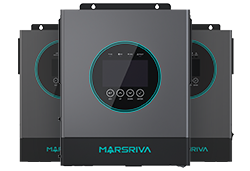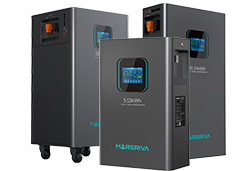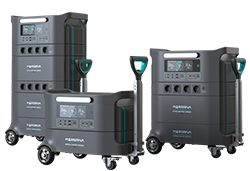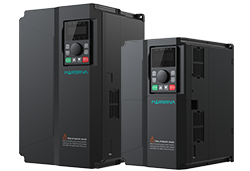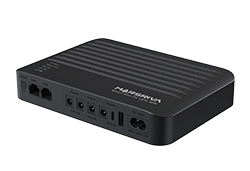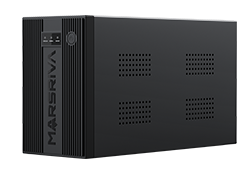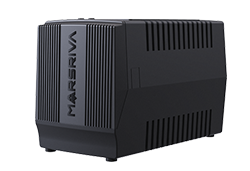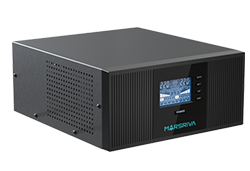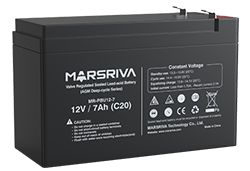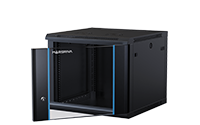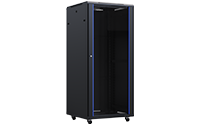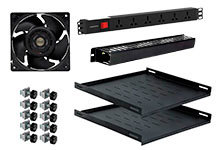Learn the latest in tech and more
Why Lithium Batteries are Ideal for Energy Storage?
Author:
Time:2024-04-18
Why Lithium Batteries Are Ideal for Energy Storage?
Lithium batteries offer the perfect balance of high performance, reliability, and versatility. They support the growing demand for renewable energy adoption, ensuring a sustainable, cost-effective, and stable energy supply for homes and industries alike.
As a company specializing in energy storage solutions, Marsriva focusing on lithium batteries for residential and industrial energy storage.
1. Why Lithium Batteries for Energy Storage?
(1)High Energy Density:
Stores more energy in a compact form, ideal for both residential and industrial setups.
(2)Long Lifespan:
Typically lasts over 4,000-6,000 charge cycles, reducing replacement frequency and long-term costs.
(3)High Efficiency:
Achieves a round-trip efficiency of over 95%, ensuring maximum utilization of stored energy.
(4)Scalable Design:
Modular systems allow for easy expansion, adapting to growing energy needs for homes and industries.
(5)Fast Charging and Discharging:
Quickly responds to load changes, perfect for peak household usage or industrial equipment demands.
2. Applications
(1)Residential Energy Storage:
*Paired with solar PV systems to store excess daytime energy for nighttime use.
*Provides backup power during outages, ensuring uninterrupted electricity supply.
*Reduces peak-time electricity costs through smart energy management.
(2)Industrial Energy Storage:
*Stabilizes power supply to critical equipment, mitigating the impact of grid fluctuations.
*Enables peak shaving and load shifting to reduce energy costs.
*Enhances renewable energy integration by storing solar or wind energy for consistent supply.
3. Core Features of Lithium Batteries
(1)Battery Management System (BMS):
Monitors voltage, current, and temperature of each cell, ensuring safe and efficient operation.
Balances charging across cells, extending battery lifespan.
(2)Safety and Stability:
Uses thermally stable materials like lithium iron phosphate (LiFePO₄) to minimize thermal runaway risks. Includes fire-resistant designs and protective circuits, essential in industrial environments.
(3)Modular Scalability:
Both residential and industrial systems can expand capacity by adding battery modules.
(4)Smart Monitoring:
Real-time monitoring systems provide energy usage analytics and early fault detection.
4. Advantages of Lithium Battery Energy Storage
(1)Eco-Friendly:
Promotes the use of renewable energy, reducing reliance on fossil fuels and lowering carbon emissions.
(2)Energy Independence:
Ensures uninterrupted power supply during grid outages or instability.
(3)Cost Efficiency:
Reduces electricity costs by shifting energy usage to off-peak hours and increasing solar self-consumption.
(4)Reliability:
Highly efficient and dependable for various energy storage applications.
5. Emerging Trends
(1)Integration with Renewable Systems:
Seamless pairing with solar inverters for optimized energy storage and usage.
(2)Higher Energy Density and Safety:
Research into advanced chemistries like solid-state lithium batteries promises greater storage capacity and enhanced safety.
(3)Large-Scale Deployments:
Industrial-scale solutions are increasingly deployed in smart grids, factories, and energy parks.
(4)Lifecycle Management:
Advanced recycling technologies and lifecycle tracking to maximize resource sustainability.
Next Page
Privacy Policy 丨 Powered by www.300.cn
SAF Coolest v1.3.1.2 设置面板 RMISS-AFRF-JZSQE-XFV
无数据提示
Sorry,The Current Column Is Being Updated
Please Stay Tuned!


